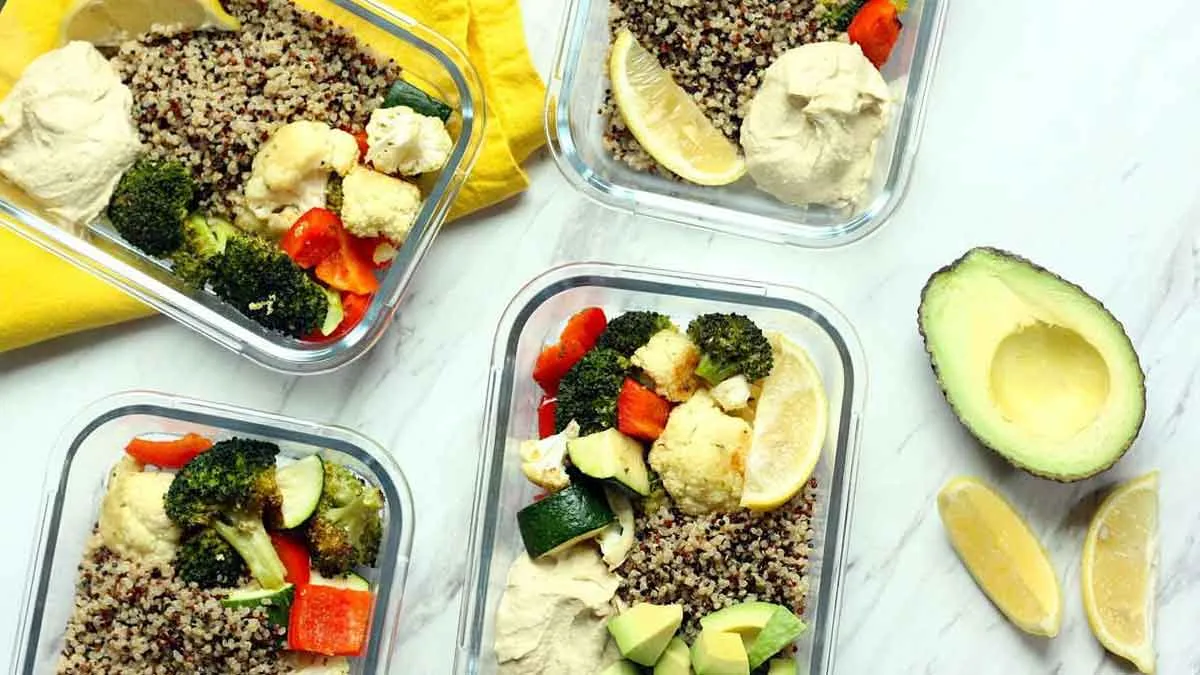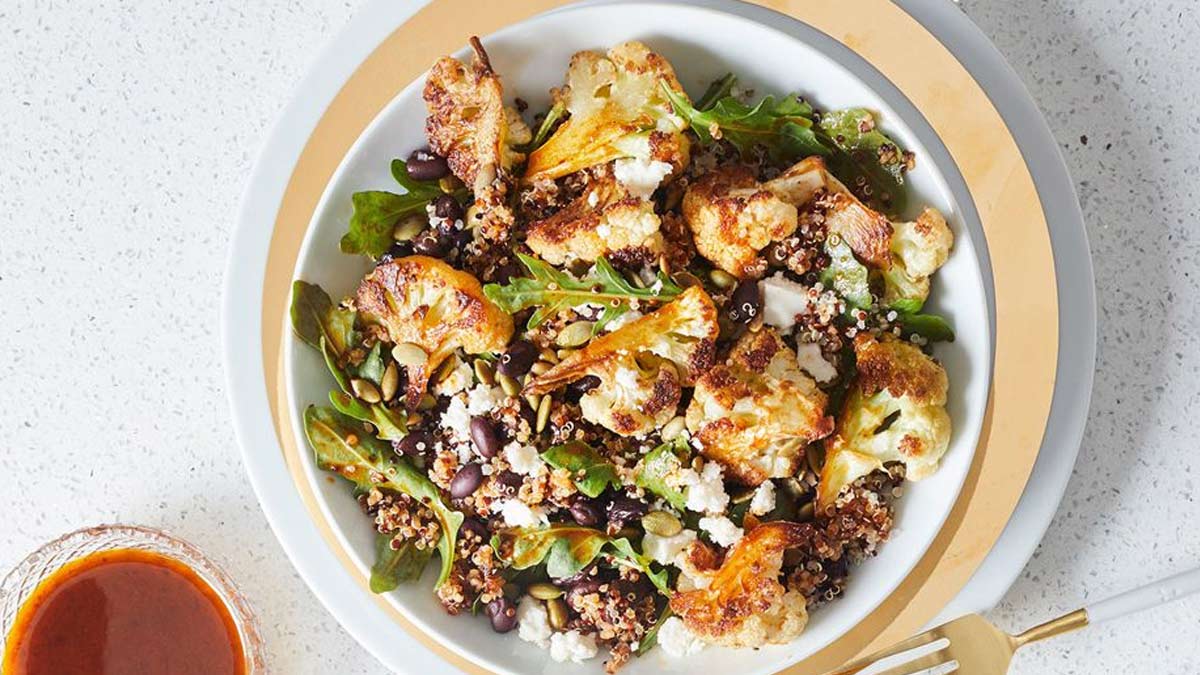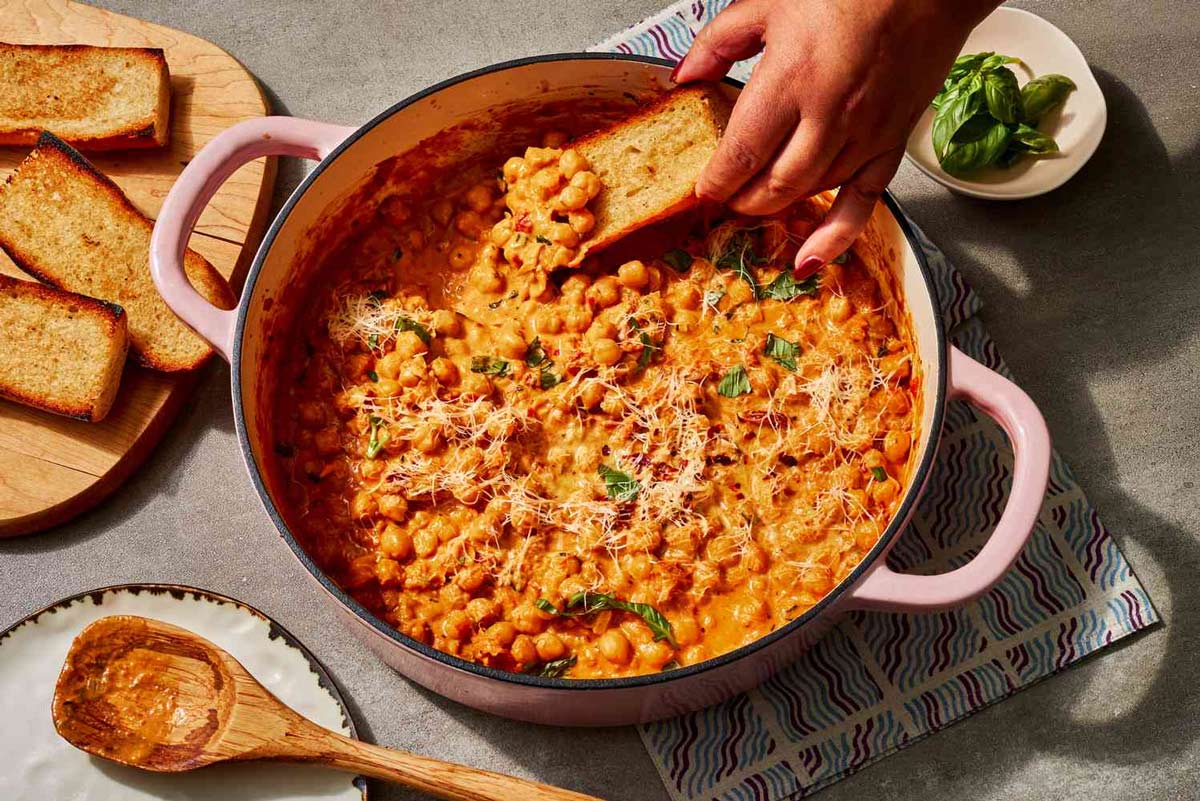
Hitting your daily protein goals on a vegetarian diet can often seem daunting, especially when we associate high-protein meals with animal-based products like chicken and fish. However, fitness coach Ralston D'Souza has demonstrated how a vegetarian diet can meet your protein needs while keeping calories in check. By carefully balancing macronutrients, his meal plan offers a practical solution for those looking to boost their fitness while following a vegetarian lifestyle. Here’s how you can fuel your body with 1,500 calories per day while achieving a high-protein intake.
Table of Content:-
Why High-Protein Meals Matter
Protein is essential for muscle repair, recovery, and overall health. For moderately active individuals weighing around 62 kilograms, Ralston suggests targeting 84 grams of protein daily while balancing 132 grams of carbohydrates and 50 grams of fats. This nutrient distribution helps sustain energy levels and supports muscle growth.
The 1,500-Calorie Vegetarian Meal Plan
View this post on Instagram
Breakfast: Start Strong
Begin your day with a balanced breakfast to fuel your morning. Combine:
- 1 slice of bread (70 calories)
- 1 teaspoon of peanut butter (30 calories)
- 300ml skimmed milk (100 calories)
This meal provides protein, healthy fats, and carbohydrates, offering sustained energy for the day.
Morning Snack: Protein-Packed Pick-Me-Up
A quick snack can help bridge the gap between meals. Opt for:
- 1 apple
- 1 scoop of protein powder mixed with water
This snack is an excellent way to supplement your protein intake, with over 20 grams of protein and fewer than 150 calories.

Lunch: A Wholesome Feast
Lunch is a key meal for hitting your macro goals. Enjoy a plate featuring:
- 100g cooked white rice
- 30g cooked dal
- 160g cabbage sabji
- 100g cooked tofu
This meal combines plant-based proteins, fibre-rich vegetables, and satisfying carbs to keep you full and nourished.
Evening Snack: Light and Refreshing
In the evening, sip on 120ml chai or coffee. Ralston suggests adding a moderate amount of milk and just 1 teaspoon of sugar to keep the calorie count in check.
Also Read: Jamie Foxx Addresses His Mysterious 2023 Health Scare In A Netflix Special; Know All About It
Dinner: Protein and Variety
End your day with a nutrient-dense dinner:
- 1 roti (35g)
- 30g cooked dal
- 160g cabbage sabji
- 75g cooked paneer
- 100g curd
This meal ensures a balanced intake of protein, healthy fats, and carbs, promoting recovery and satiety before bed.

Expert Tips for Optimizing Your Diet
Bread Choices
Choose any type of bread—white, brown, or multigrain—as long as it stays under 70 calories per slice.
Tea or Coffee Modifications
A dash of milk and 1 teaspoon of sugar in your tea or coffee won’t derail your progress.
Curry Hacks
Minimise the use of heavy cream or nut pastes in curries while seasoning liberally with salt, pepper, and condiments to enhance flavour.
Oil Usage
Use oil sparingly in all dishes to keep the fat content within the recommended range.
Substituting Protein Sources
If you prefer alternatives to protein powder, consider swapping it with:
- 45g raw soya chunks
- 75g low-fat paneer
- 300g plain Greek yogurt
Flexibility in Carbs
You can substitute 100g of cooked rice with 1 roti or adjust as per your preferences.
Fruits for Extra Calories
Should you have calories to spare, feel free to add a fruit, extra rice, or another roti to your meal plan without significantly impacting your overall goals.
Finding Balance in Your Diet
Ralston emphasizes keeping your diet simple and sustainable. While this meal plan offers a blueprint, it’s important to listen to your body and adjust based on your activity levels and personal goals. Whether you’re aiming for fat loss or muscle gain, this plan provides the flexibility and nutritional balance to support your journey.
Achieving a high-protein intake on a vegetarian diet is possible with the right strategy. Incorporating these tips and meals into your routine can help you stay on track while enjoying a variety of delicious, plant-based foods.
Also watch this video
Read Next
Why Harry Styles Chooses a Pescatarian Diet: Exploring The Benefits Of Nutrition And Sustainability
How we keep this article up to date:
We work with experts and keep a close eye on the latest in health and wellness. Whenever there is a new research or helpful information, we update our articles with accurate and useful advice.
Current Version